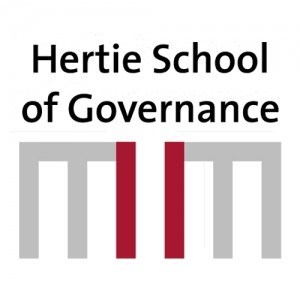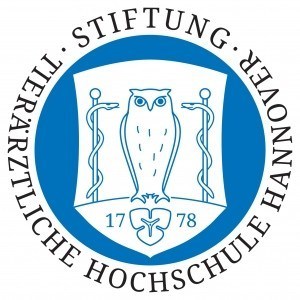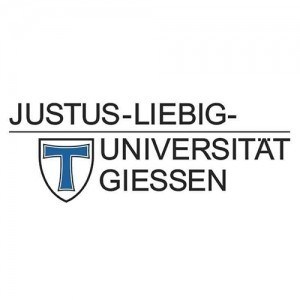Photos of university / #humboldt.uni
The Double Degree Programme in Quantitative Economics offered by Humboldt University of Berlin in collaboration with Mannheim University provides students with a unique opportunity to obtain comprehensive training in economic theory, quantitative methods, and data analysis through an integrated curriculum spanning two leading European institutions. This programme is designed for highly motivated students who aim to develop a deep understanding of complex economic phenomena, supported by rigorous mathematical and statistical skills necessary for research and policy analysis in both academic and professional settings. Over the course of the programme, students spend their first year immersed in the academic environment of Humboldt University, where they engage with advanced coursework in microeconomics, macroeconomics, econometrics, and mathematical methods. The curriculum emphasizes analytical thinking, quantitative reasoning, and research competencies, laying a solid foundation for subsequent study.
In the second year, students transition to Mannheim University, where they benefit from specialized modules and practical applications tailored towards contemporary economic challenges. The programme promotes international outlook and intercultural skills, as students are encouraged to collaborate with peers from diverse backgrounds, participate in seminars, workshops, and research projects. The double degree structure enables graduates to earn two recognized diplomas, equipping them with an academic profile highly valued by employers in finance, consultancy, governmental agencies, and international organizations.
Throughout the programme, students gain not only academic excellence but also develop critical thinking and problem-solving abilities through exposure to real-world economic issues and quantitative research techniques. The holistic educational approach combines theoretical knowledge with practical skills, fostering agility in analytical reasoning and data-driven decision-making. Graduates of this double degree programme will be well prepared to pursue further academic study, such as doctoral research, or to enter the competitive job markets with a robust portfolio of skills, international experience, and a global network of contacts. This programme exemplifies Humboldt University’s commitment to fostering academic excellence, innovative research, and the training of future leaders in the field of Economics.
The Double Degree Programme in Quantitative Economics offered jointly by Berlin and Mannheim, as well as partnerships with ENSAE and ENSAI, provides a comprehensive and rigorous education in advanced economic analysis, data science, and quantitative methods. This programme is designed for ambitious students who seek to develop deep expertise in economic theory, econometrics, statistics, and computational techniques, enabling them to tackle complex economic and social problems in academia, industry, or policy-making.
Throughout the programme, students engage in a diverse curriculum that covers core topics such as microeconomics, macroeconomics, and game theory, complemented by advanced modules in econometrics, mathematical modeling, and programming. The curriculum emphasizes quantitative skills, including statistical inference, data analysis, machine learning, and optimization, preparing graduates for roles that require sophisticated analytical capabilities. By participating in courses across both partner universities, students benefit from the unique strengths and research opportunities available at each institution, gaining exposure to various perspectives and methodologies.
In addition to coursework, the programme offers practical experience through internships, research projects, and seminars led by leading economists and data scientists. Students also have the opportunity to attend workshops, participate in international conferences, and collaborate on research initiatives, fostering a vibrant academic community that promotes intellectual exchange and innovation. The double degree structure culminates in the awarding of two diplomas—one from each partner university—thus significantly enhancing career prospects and academic credentials.
Graduates from the programme are well-equipped to pursue doctoral studies or to enter the workforce as data analysts, economic consultants, policy advisors, or researchers in international organizations, government agencies, financial institutions, and tech companies. Overall, this programme provides a unique blend of theoretical rigor and practical application, ensuring graduates have the skills, knowledge, and international experience to excel in the rapidly evolving field of quantitative economics.
Language requirements
German - B2French - B2
English - B1 (Statistics), C1 (Economics)
All have to be ensured via a certificate for prior studies in the respective language or a commonly acknowledged certificate for the respective language (UniCERT, Cambridge Certificate, TOEFL, IELTS, Sprachdiplom, etc.).
Required DSH / TestDaF
YesAcademic requirements
Bachelor's degree in Economics, Statistics, or MathematicsEnrolment fees
HU Berlin - 320 EURUniversity of Mannheim - 140 EUR
ENSAE - 811 EUR
ENSAI - 550 EUR + 200 EUR for mandatory health insurance
The Double Degree Programme in Quantitative Economics at Humboldt University of Berlin offers students a unique opportunity to gain comprehensive knowledge and international experience in the field of economics. This program is designed as an integrative curriculum that combines rigorous coursework in quantitative methods, economic theory, and empirical analysis. Students enrolled in this program have the chance to study at two prestigious institutions, typically Humboldt University Berlin and partner universities such as the University of Mannheim or the École Nationale de la Statistique et de l'Analyse de l'Information (ENSAE) and the École Nationale de la Statistique et de l'Analyse de l'Information (ENSAI). The curriculum is carefully structured to ensure that students acquire a diverse set of skills, including advanced econometrics, data analysis, mathematical modeling, and policy evaluation.
Throughout the program, students benefit from specialized training in data science, machine learning, and statistical inference, equipping them with the tools required for high-level research or careers in economic analysis, consulting, finance, and public policy. The programme emphasizes the development of analytical thinking, quantitative reasoning, and critical evaluation of economic problems, often through project-based learning and collaboration with faculty and industry partners. The double degree structure allows students to earn degrees from both institutions upon successful completion, which significantly enhances their employability and academic prospects due to the recognition of the joint qualification in international labor markets.
In addition to the extensive coursework, students may participate in seminars, internships, and research projects that provide practical experience and foster professional networks. The program emphasizes multilingual competence and cultural exchange, as students are encouraged to engage with diverse perspectives in economics and social sciences. Graduates of this double degree program are well-prepared for doctoral studies or professional careers that require high-level quantitative skills and international experience. The duration of the program typically spans over two years for full-time students, and applicants are expected to have a solid academic background in economics, mathematics, or related disciplines. The program promotes an international academic environment, with students from various countries, nurturing a global perspective essential for addressing complex economic challenges.
Overall, the Double Degree Programme in Quantitative Economics at Humboldt University Berlin stands out as an excellent choice for students aiming to specialize in the quantitative aspects of economics, gain international exposure, and develop a competitive profile for the global job market or further academic pursuits. Such programs are designed to foster not only academic excellence but also intercultural competence, critical thinking, and practical skills, aligning with the university’s mission to contribute to innovative research and sustainable development.









